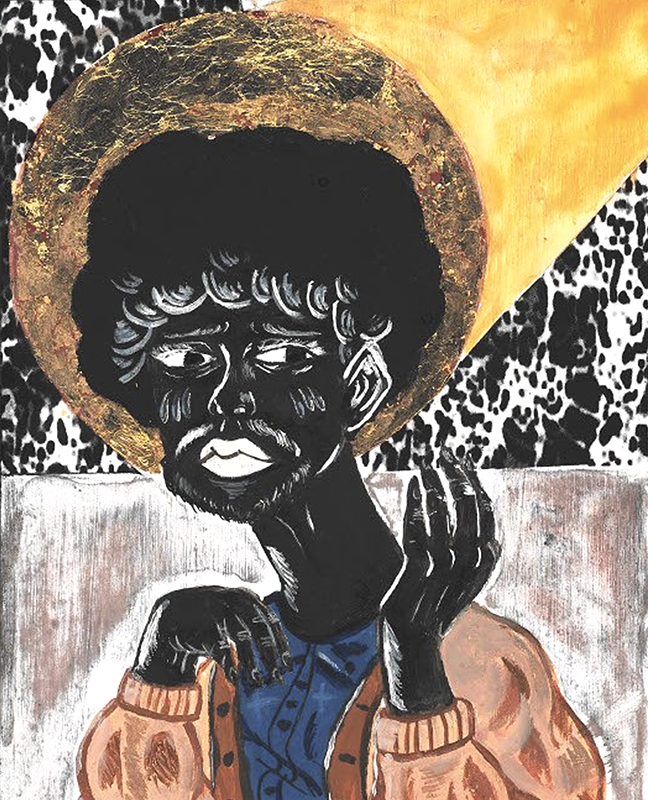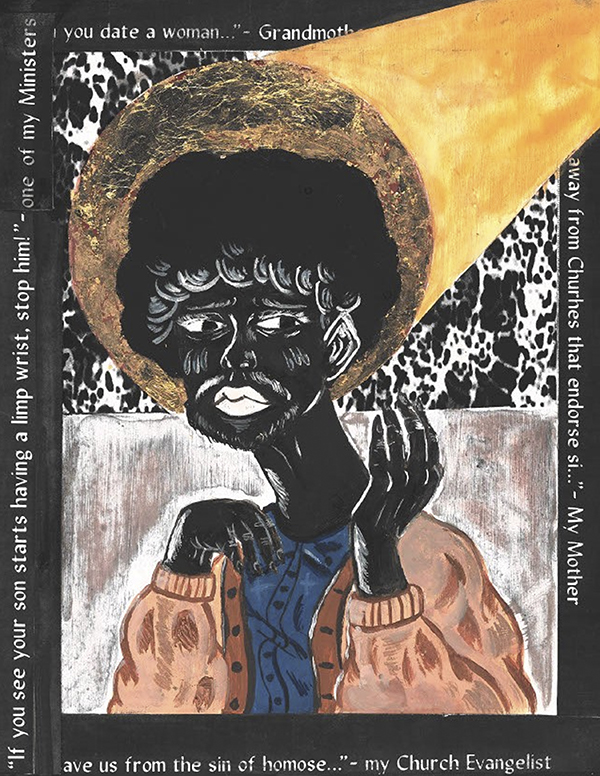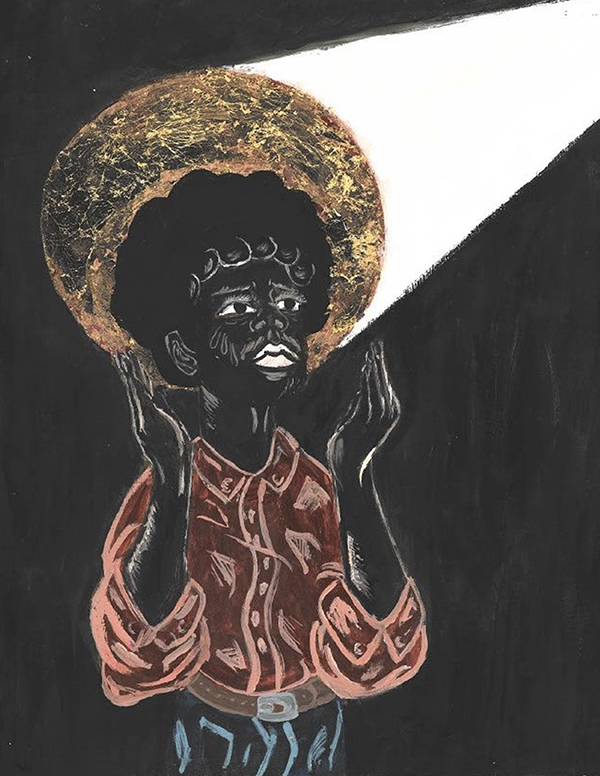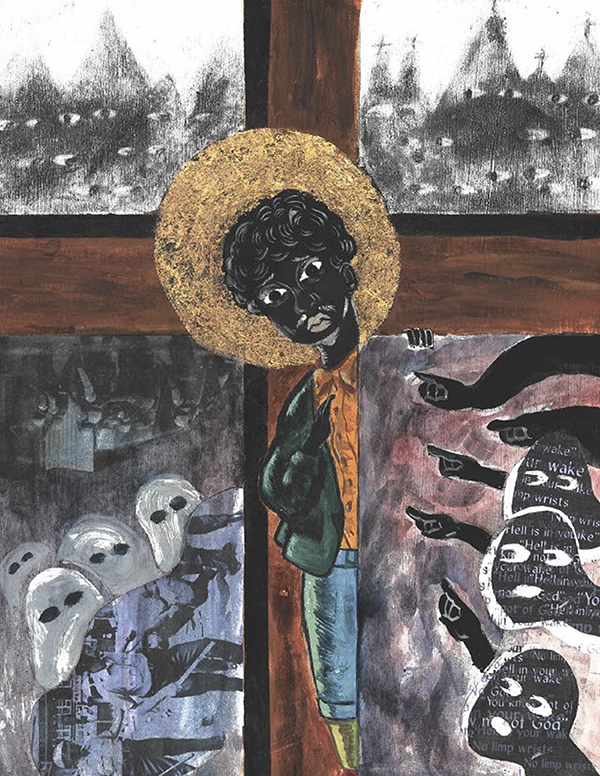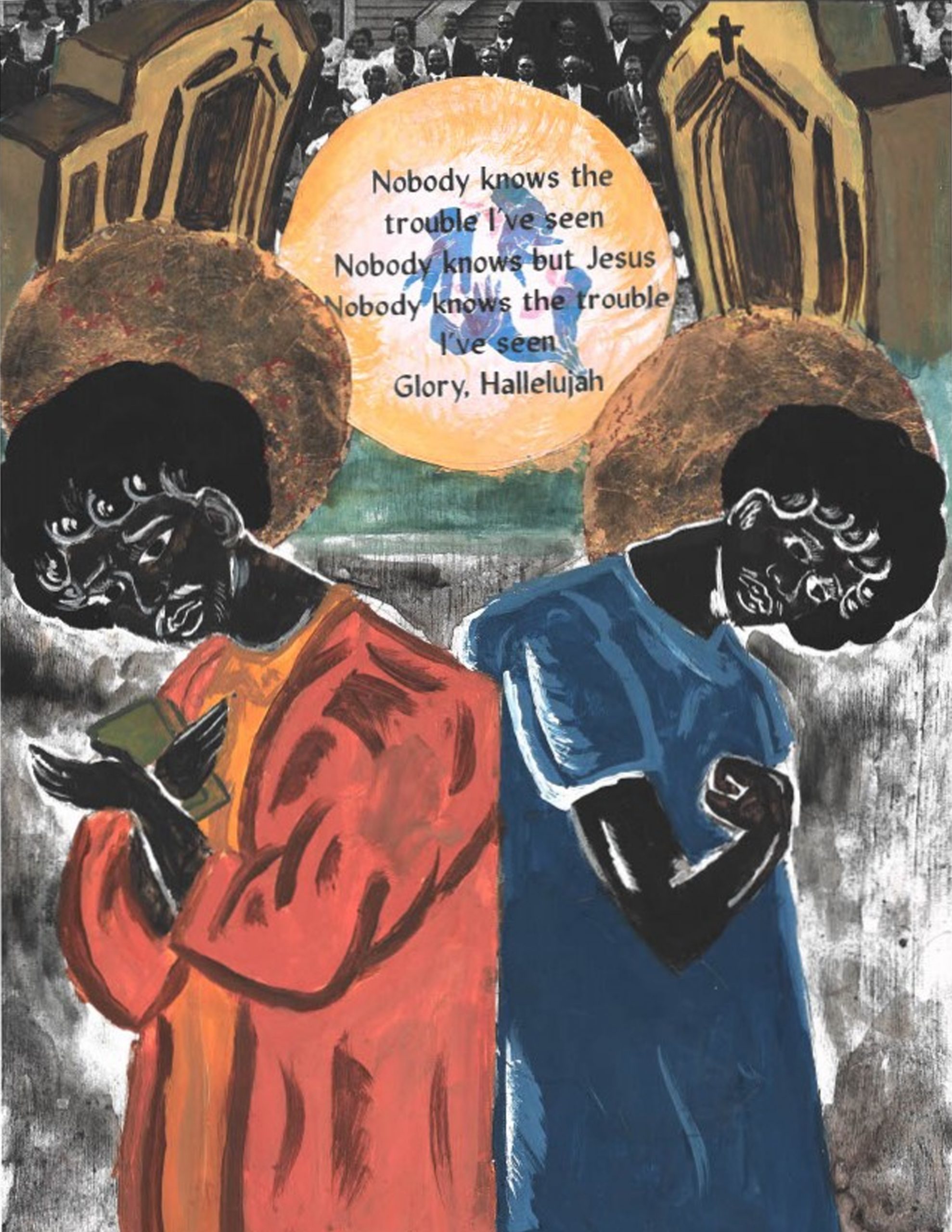Joshua Washington
Didn't my Lord deliver Daniel?
Series protest art centered around the experiences of Black people in America
.
I’ve created a set of protest art that’s centered around capturing the experiences of Black people in America from a theological lens. Particularly through the lens of Liberation theology. Liberation Theology is known by its adherents as a theology for the oppressed. It is essentially a synthesis of Christian Social Ethics and some of the core elements of Marxism. It entails that one of the chief goals of the Christian life is for the liberation and uplifting of the marginalized. It understands that one of the fundamental roles of the Christian life is to identify with the oppressed as Jesus identified with the oppressed. As James H. Cone put it: “there can be no theology of the gospel which does not arise from an oppressed community.” Much of the motivation of these pieces are also due to the impression left on me by the George Floyd protests. For me, the protests spoke a profound idea that has been properly articulated in Liberation theology: Christ thrives in where marginalized people affirm their humanity in the face of injustice. Given how rich this tradition is, It helps me find powerful connections with regards to things like the persecution of Christ and the persecution of marginalized people under those in power. I want to apply what I’ve learned from my own independent journey to creating a set of paintings. I find utilizing some of the stylistic approaches used by the Orthodox church to be the most effective. It will be 3-5 11 x 14 mixed media paintings/drawings and one three-panel altarpiece. For the paintings/drawings, I decided to use them to explore my own struggles as a black bisexual/queer Christian man and how I’m learning to understand the dimensions of my own experiences. The altarpiece itself explores different abstract narratives/themes of oppression and liberation through the use of religious imagery in ways that fit within our contemporary era. I would hope that these will evoke a feeling of reflection and, possibly, even dialogue about broader topics on race, religion, and politics, and the intersection between all three of them, especially when it comes to the theological significance of resistance to oppression.
Instagram: @joshua_washington_art
Twitter: @JoshsArt1
-
-
Joshua Washington
